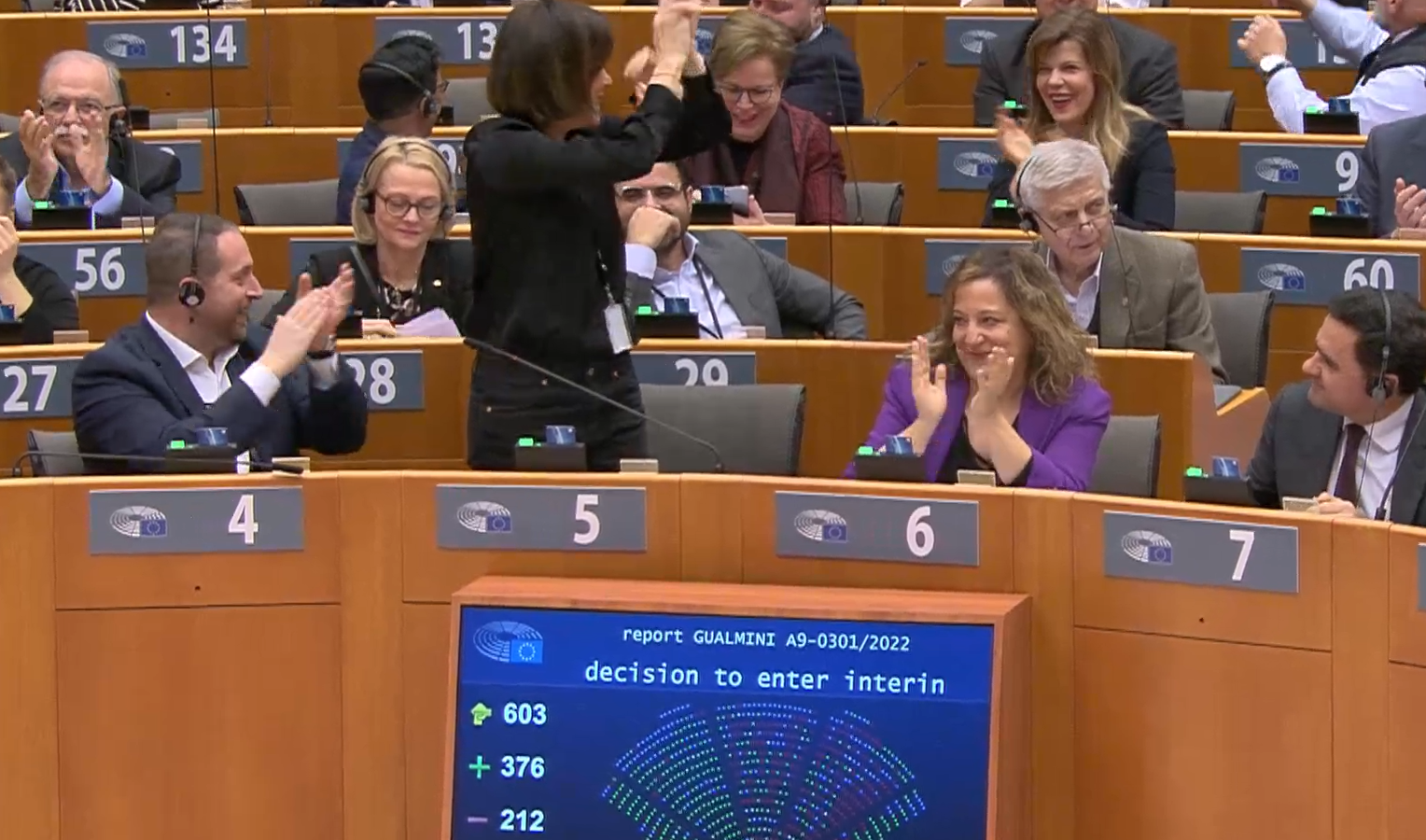
Parliament adopts strong mandate for platform negotiations
Corporate lobbyists fail to deceive MEPs.

A decisive victory for workers today, as the European Parliament adopted the employment committees’ mandate for trilogue negotiations on the platform workers directive. Despite pumping significant financial resources into continuing their exploitative business model, corporate lobbyists for companies such as Uber, Deliveroo and others failed to prevent MEPs from protecting their profits – with elected officials instead looking to deliver for workers.
With a vote of 376 in favour, rapporteur Elisabetta Gualmini (S&D, IT) was successful in providing guarantees on the reversal of the burden of proof, ending the faux “self-employed” status for workers throughout the European Union.
The position is a major step on clarifying what is the professional relationship platform workers have with their employer, and an important move towards better protection of people in atypical working conditions. While the final text leaves some gaps, for example on non-mandatory criteria to determine worker’s employment status, the agreement is a step further on improving the original proposal. The additions on algorithmic transparency and the prohibition of certain high-risk practices are well in-line with the principles of the upcoming European AI Act. Algorithms used in any workplace, platforms or otherwise, need to be subject to human oversight and adequate levels of understanding to ensure that they respect human rights.
Reacting to the vote, Eurocadres President Nayla Glaise said:
"A great day for workers, congratulations to all who have worked on this important file, including ETUC colleagues who have advocated for improvements from the outset. Yet again, trade unions have delivered against big business, protecting some of the most vulnerable of European workers".
“While we still have a long way to go in trilogue negotiations, the Parliament has today sent a clear message of support to workers and platforms alike. Definitely overdue, but we can hope this is the first of many victories against those who place employees at risk to maximise profit”.
The parliament negotiating team have already shown their strength in securing these victories, and we have full confidence in their ability to avoid any watering down of the directive when entering into trilogues. This is a landmark victory against precarious working conditions for European citizens.
For professionals and managers, this is a particularly significant development. Platform work is often associated with large transport or craftwork, but its importance has grown for professionals and managers, especially in areas dominated by freelancers or workers with otherwise atypical status. Professionals and managers are increasingly providing their services through platforms, undertaking a range of roles in coding, engineering and other activities. As this 2018 Eurofound study underlines, professional services are among the most common platform work activities in all European countries included in their analysis.
